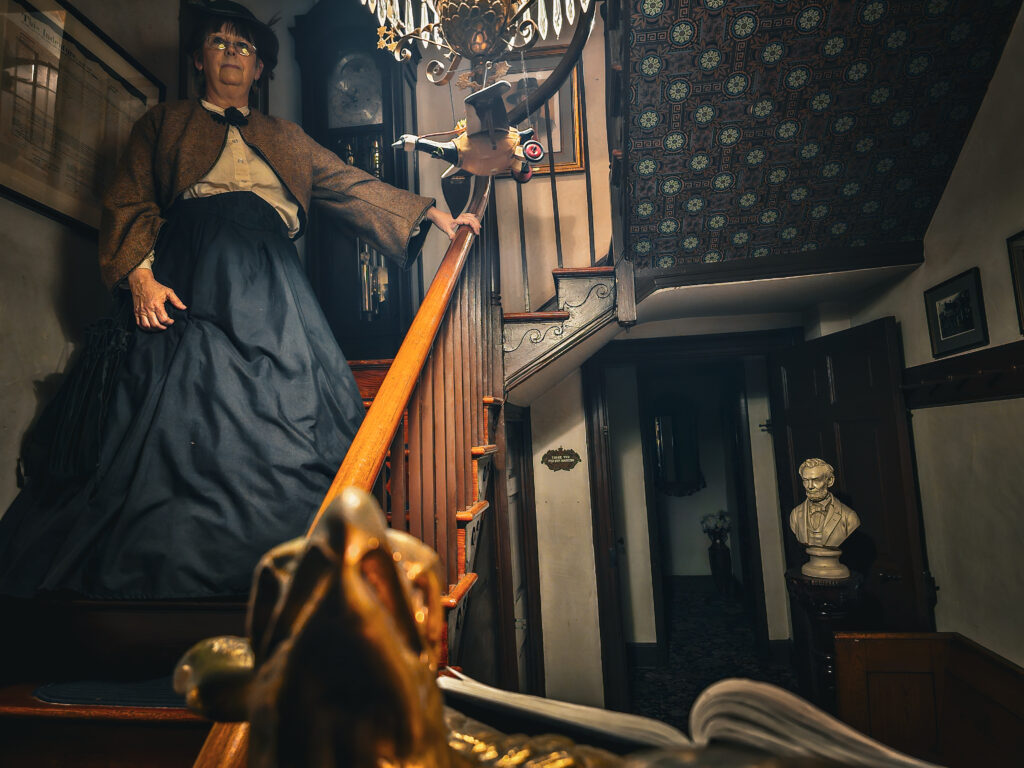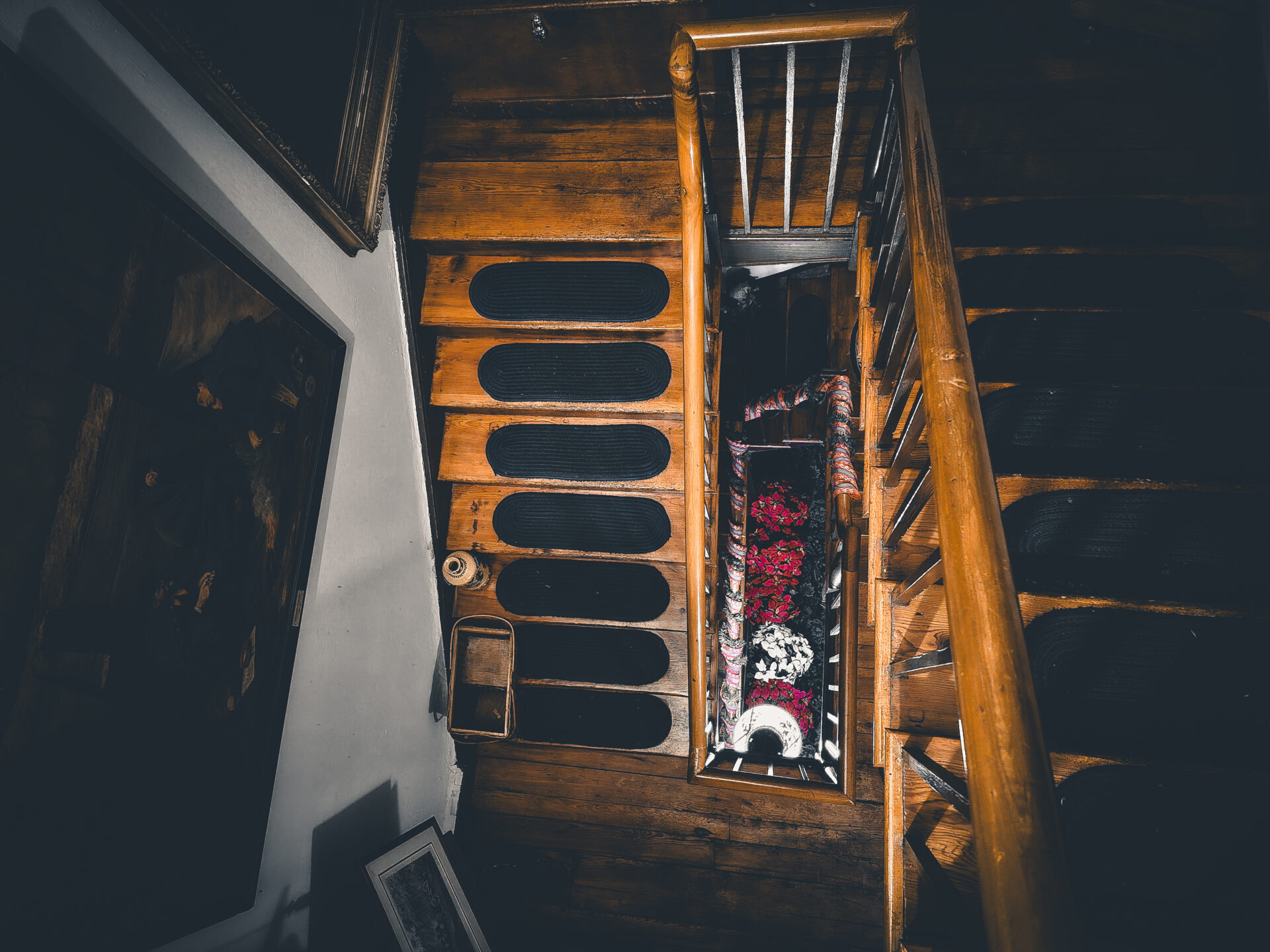
About the Farnsworth
House Inn

The house is named in honor of Brigadier General Elon John Farnsworth, who led an ill-fated charge after the failure of Pickett’s charge, claiming the lives of Farnsworth and 65 of his men.
The original part of the house was built in 1810, followed by the brick structure in 1833. The house sheltered Confederate sharpshooters during the three-day conflict, one of whom it is believed to have accidentally shot 20 year-old Mary Virginia “Jennie” Wade, the only civilian who died during the battle. More than 100 bullet holes pock the walls. Following the battle, the house served as a hospital.
The Lincoln procession passed the Farnsworth House on November 19, 1863, on the way to the National Cemetery where he delivered the famous Gettysburg Address. Harvey Sweney, the owner of the house during the battle, composed a letter to his brother, penning the most insightful and powerful account ever written on the subject.
Our Bed & Breakfast guests enjoy lovely Victorian rooms. For a dining experience reminiscent of the Civil War era, our Meade and Lee dining rooms offer Pennsylvania Dutch and period fare served by period dressed servers. Our family friendly Sweney’s Tavern features a vast collection of props from the movie, Gettysburg. The garret (attic) holds a personal collection of Civil War artifacts. The Farnsworth House has won many awards and recognition over the years. A&E, BBC, Food Network, Discovery, History, Sci-Fi, and Travel Channels, Hollywood Squares and Wheel of Fortune have featured our Historic Inn.
The Farnsworth House Inn is in good company. Fine Living Magazine puts it in the same category as the legendary Don CeSar Beach Resort in St. Petersburg, Florida. It has the same distinction as the Hotel del Coronado in San Diego, the Queen Mary Hotel in Long Beach and the Lizzie Borden Bed & Breakfast in Fall River Massachussetts. Whats the connection? They are all among the most haunted locations in America.
A little More History
The Farnsworth House Inn, located in Gettysburg, Pennsylvania, is not only a charming bed and breakfast but also a historical landmark deeply intertwined with the events of the American Civil War. Built-in 1810 by John McFarlane, the Farnsworth House has witnessed over two centuries of history, but it is most famously known for its connection to the Battle of Gettysburg in 1863.
During the Battle of Gettysburg, which raged from July 1st to July 3rd, the Farnsworth House played a significant role as it stood at the epicenter of the conflict. The house itself served as a field hospital for wounded soldiers from both the Union and Confederate armies. Its rooms, once peaceful and domestic, were transformed into makeshift operating theaters where surgeons worked tirelessly amid the chaos of war.
Today, the Farnsworth House Inn stands as a testament to the enduring legacy of the Battle of Gettysburg. Visitors can stay in rooms that once sheltered wounded soldiers and experience firsthand the echoes of history that still resonate within its walls. The inn offers guided tours that recount the harrowing events of the battle and the house’s role in providing aid to the wounded.
Throughout its existence, the Farnsworth House has weathered the passage of time, witnessing countless stories of bravery, sacrifice, and resilience. It stands as a living monument to the enduring spirit of those who fought and died in one of the most pivotal moments in American history.
“The Farnsworth House at Gettysburg: History and Hauntings” by Stephanie Hoover – This book delves into the history of the Farnsworth House and its role during the Battle of Gettysburg, as well as the reported paranormal activity associated with the inn.
Gettysburg National Military Park – The official website of the Gettysburg National Military Park provides historical information about the Battle of Gettysburg, including details about the Farnsworth House’s significance during the conflict.
“Ghosts of Gettysburg: Spirits, Apparitions, and Haunted Places of the Battlefield” by Mark Nesbitt – This book discusses the Farnsworth House’s history and its alleged paranormal encounters following the Battle of Gettysburg.
Local historical societies and archives in Gettysburg, Pennsylvania, may contain primary sources such as letters, diaries, and other documents related to the Farnsworth House’s involvement in the Civil War.

For over 215 years the Farnsworth House has had four owners. John McFarlane, 1810, Harvey Sweney, 1852, George Black, 1909, and Lorning Shultz, 1972. Loring and his wife, Jean, have been very dedicated to their establishment for over 50 years. The Historic Farnsworth House Inn has been a family run business since 1972. With their four kids, grandchildren , and even great grandchildren all working together, this places isn’t just a business, but home.

